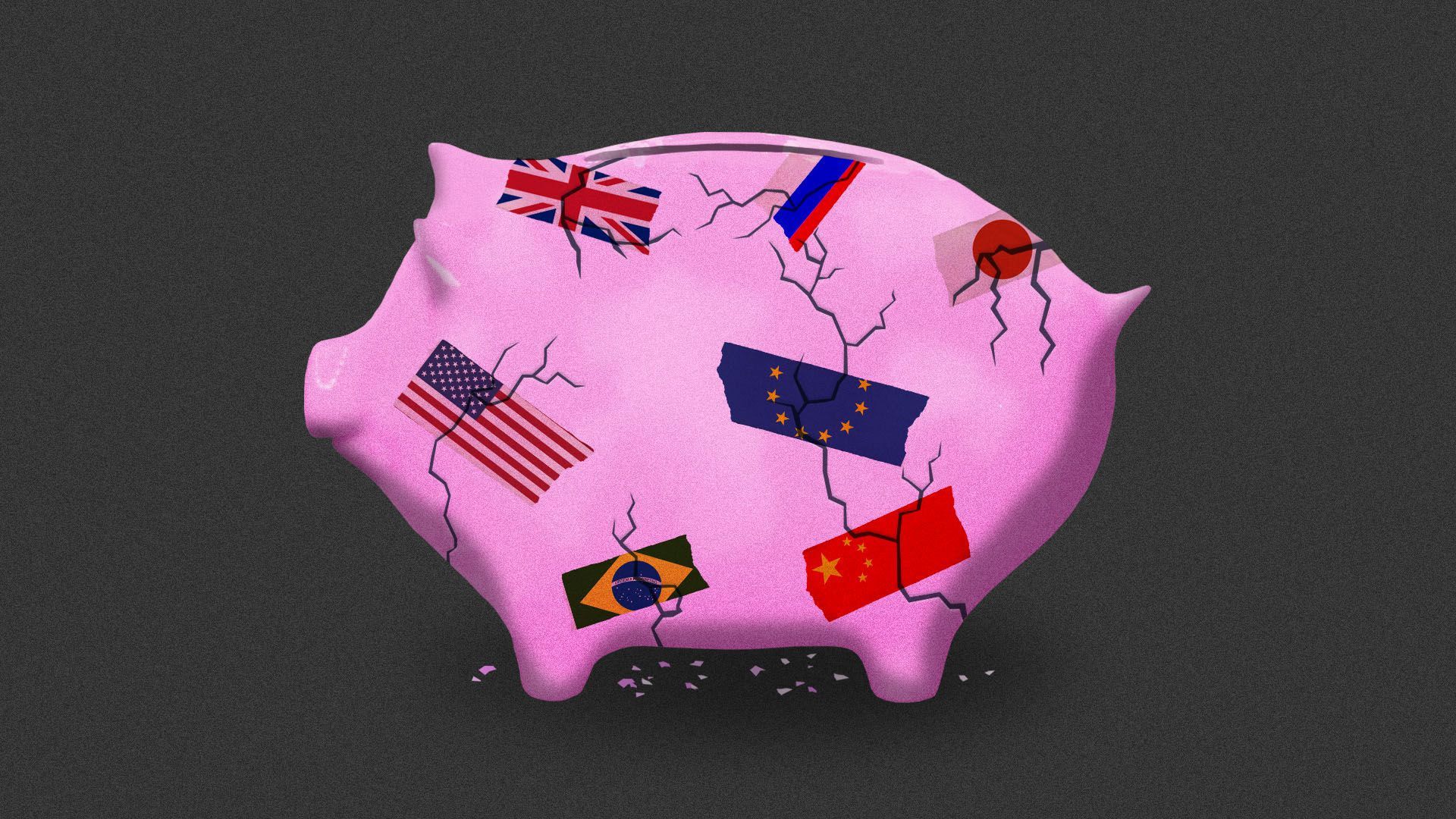The IMF's coronavirus depression projection is a show of optimism
Add Axios as your preferred source to
see more of our stories on Google.

Illustration: Sarah Grillo/Axios
The coronavirus pandemic will bring about the worst economic downturn since the Great Depression, the IMF predicted Tuesday in its latest World Economic Outlook — and that is its optimistic outlook.
The state of play: The Fund admitted in a rare show of doomsaying that damage could be far worse than its projections and that while there's some chance they could be positively surprised, "downside risks prevail."
Why it matters: The organization's baseline expectation is for a recession "far worse" than the 2008 financial crisis, with global GDP contracting by 3% this year. That's a drastic downgrade from its forecast of 6.3% growth in January, and 30 times worse than the economic decline in 2008.
- "This is a truly global crisis, as no country is spared," IMF chief economist Gita Gopinath said during a media briefing.
The big picture: Global GDP is expected to face a cumulative loss of about $9 trillion — larger than the economies of Japan and Germany combined. That is what happens in the IMF's rosy scenario in which the coronavirus is contained quickly and the world swiftly resumes economic activity.
- "The pandemic may not recede in second half of this year, leading to longer containment periods, worsening financial conditions and further breakdowns in global supply chains," Gopinath warned.
- "In such cases, global growth will fall even further, by an additional 3% in 2020, and if the health crisis rolls over into 2021 it can reduce the level of global GDP by an additional 8% compared to the baseline."
Where it stands: The IMF is recommending coordinated fiscal stimulus, a moratorium on debt payment and debt restructurings, and additional financing and grants for the world's poorest countries.
- Tobias Adrian, head of the IMF's monetary and capital markets department, says the Fund already has received a record number of requests for lending and funding from developing economies, with more than half of the IMF's membership having now requested assistance.
What to watch: Finance ministers and central bank leaders from the G7 nations met again Tuesday and again announced no new coordinated measures to bolster the global economy at large.
- That so-far-missing effort is exactly what the IMF says will be necessary to contain the economic crisis to its baseline projections.
Go deeper: Coronavirus could force the world into an unprecedented depression
